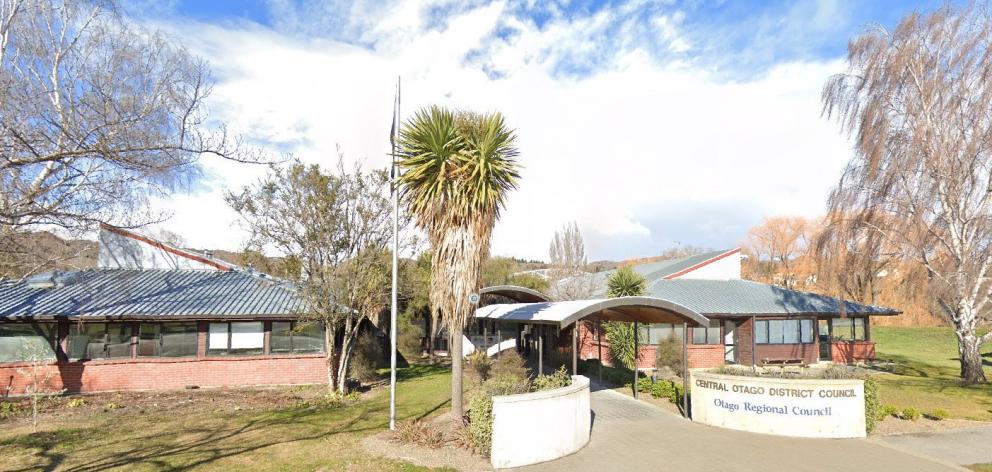Business
Central Otago Council Faces Financial Planning Challenges Ahead of Elections

The Central Otago District Council is grappling with financial planning issues as it prepares for the upcoming 2027-37 long-term plan. Presenters Alix Crosbie, the council’s policy and strategy lead, along with Ameila Lines, the risk and procurement manager, highlighted the complexities involved in the process during a recent committee meeting. The timeline for the new plan has been condensed to two years due to delays from the government’s water reform initiatives.
Key Concerns Impacting Financial Strategy
According to the report, additional management plans related to water services will also affect the long-term planning process. Crosbie noted that rising rates and the current financial environment are expected to spark discussions regarding the levels of service provided to residents. The committee chairman, Bruce Robertson, emphasized the importance of monitoring affordability and financial risk in the council’s operations.
Robertson expressed concerns over the absence of a clear financial strategy in the current planning report. “I didn’t see financial strategy in here… when are you going to do it?” he questioned. In response, Mayor Tamah Alley directed him to a section of the report, but Robertson remained dissatisfied, stating, “I think it’s implied but looking at this I think the financial strategy is understated.” He sought clarity on whether the financial strategy was a product of planning or a driving force behind the council’s financial positioning.
Future Planning Depends on Incoming Council
Ameila Lines acknowledged that staff would not have definitive answers until they receive direction from the new council following the upcoming elections on October 14, 2023. Paul Morris, the council’s chief financial officer, explained that traditionally, the financial strategy has been viewed as an outcome of planning rather than a starting point. He suggested two approaches: securing a fiscal envelope at the outset or presenting budgets to align with expectations. Morris indicated a preference for the former approach, as it provides clarity for staff on available resources.
Robertson concurred, noting that the forthcoming long-term plan may prove to be the council’s most challenging yet, particularly due to ongoing changes to water services and central government reforms. To better prepare for future decisions, Crosbie announced that the council would offer long-term planning training for both staff and elected members, following a review of the previous planning process.
The discussions at the Central Otago District Council reflect broader challenges faced by local governments in balancing financial sustainability with community service needs. As the council approaches crucial elections, the development of a robust financial strategy will be essential for guiding its future decisions and ensuring effective governance.
-

 World2 weeks ago
World2 weeks agoPrivate Funeral Held for Dean Field and His Three Children
-

 Top Stories3 weeks ago
Top Stories3 weeks agoFuneral Planned for Field Siblings After Tragic House Fire
-

 Sports3 months ago
Sports3 months agoNetball New Zealand Stands Down Dame Noeline Taurua for Series
-

 Entertainment3 months ago
Entertainment3 months agoTributes Pour In for Lachlan Rofe, Reality Star, Dead at 47
-

 Entertainment2 months ago
Entertainment2 months agoNew ‘Maverick’ Chaser Joins Beat the Chasers Season Finale
-

 Sports3 months ago
Sports3 months agoSilver Ferns Legend Laura Langman Criticizes Team’s Attitude
-

 Sports1 month ago
Sports1 month agoEli Katoa Rushed to Hospital After Sideline Incident During Match
-

 World4 weeks ago
World4 weeks agoInvestigation Underway in Tragic Sanson House Fire Involving Family
-

 Politics2 months ago
Politics2 months agoNetball NZ Calls for Respect Amid Dame Taurua’s Standoff
-

 Top Stories3 weeks ago
Top Stories3 weeks agoShock and Grief Follow Tragic Family Deaths in New Zealand
-

 Entertainment4 months ago
Entertainment4 months agoKhloe Kardashian Embraces Innovative Stem Cell Therapy in Mexico
-

 World4 months ago
World4 months agoPolice Arrest Multiple Individuals During Funeral for Zain Taikato-Fox













